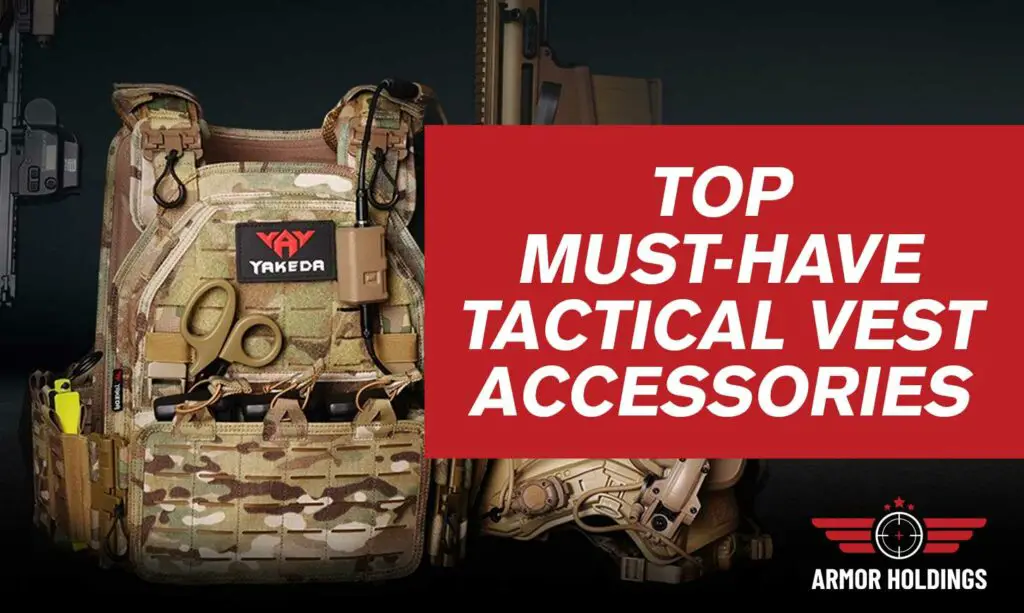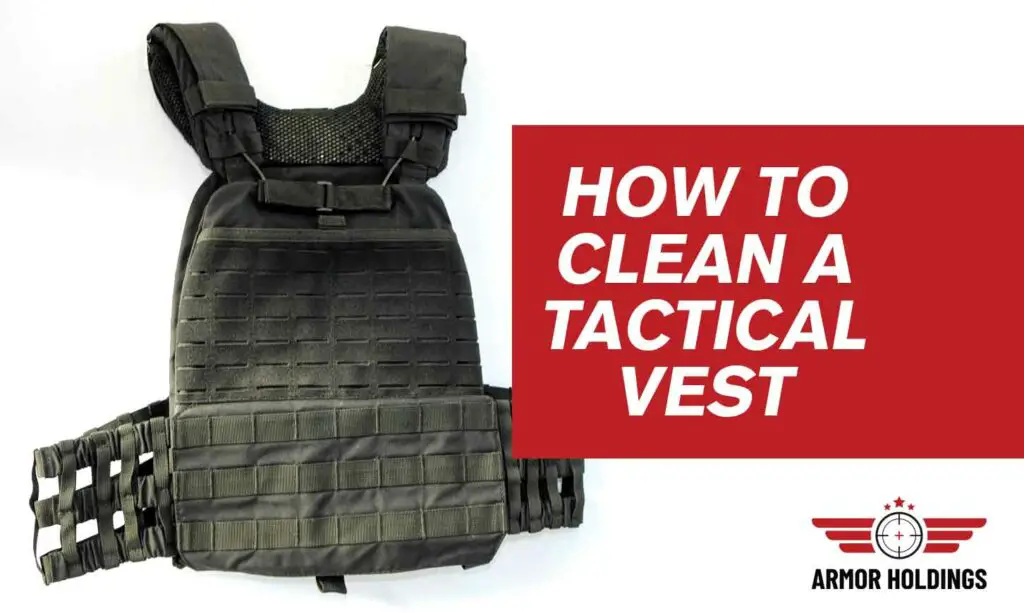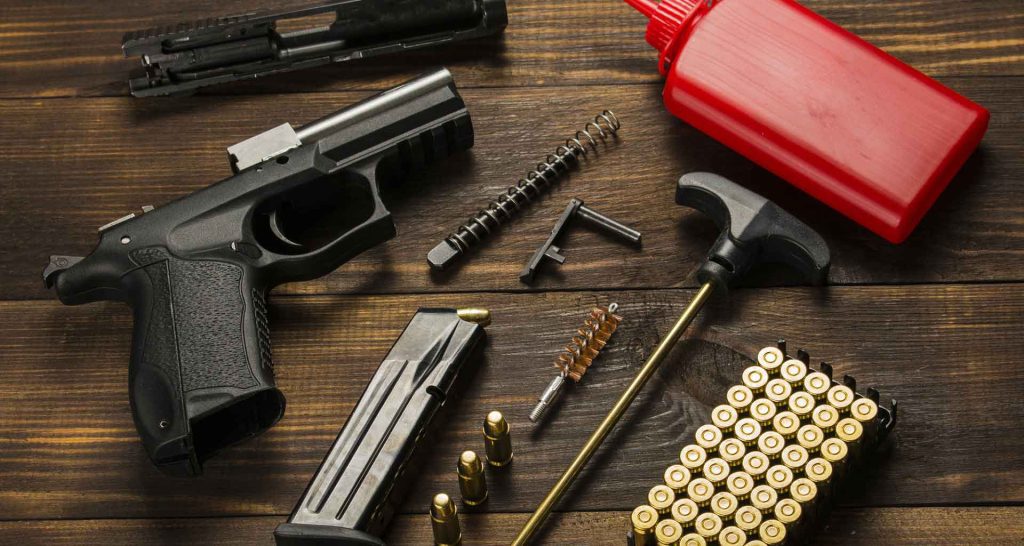
How to Clean a Handgun
In the lineup of defensive handguns out there today, not one of them will be able to perform at their best if they’re not clean.
Any smart gun owner understands the importance of keeping their equipment in shape, and even if you haven’t fired it lately, it still deserves some TLC.
How do you clean a handgun? There are different methods for cleaning a gun depending on the type, and different ways to do it, including a field stripping or a complete disassembly.
The safest way to clean yours is to follow the strict instructions relating to that specific weapon, but the same general steps usually apply.
A handgun will only work effectively and safely if it’s taken care of, and it’s your job as a gun owner to know when and how to do it right.
We’ll walk you through the basics of how to clean a handgun, the tools you need when to do the job, and how to do it, so you’ll no longer be left in the dark.
Why Do You Need to Clean a Gun?
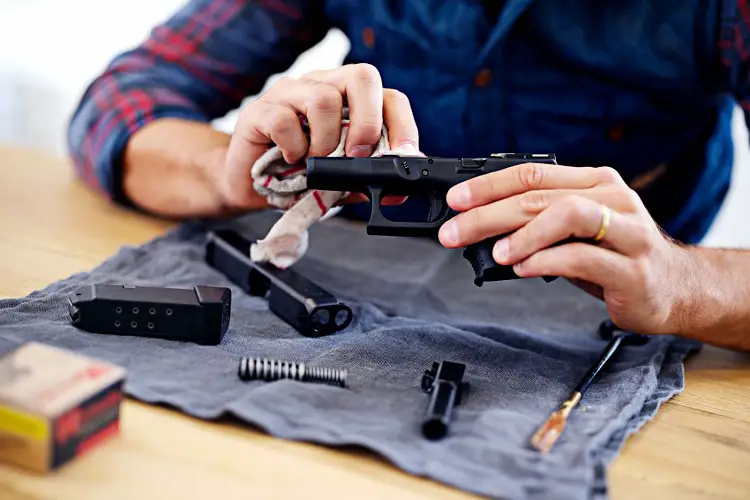
The goal of any gun is to be effective and ready for action whenever it’s needed, and keeping it clean is the best reassurance you can have of this.
Even when a gun isn’t used regularly, it still needs to be maintained and checked that it’s in good condition, with some of the benefits of doing so including:
- A better understanding of your weapon each time you clean it. Taking the gun apart and focus on the various components that make it up will ensure you know how it operates and what it should look like when it’s in good shape. Not only that, you’re ensuring there are no errors or malfunctions with the weapon each time you do a functional check, which always happens after you clean it.
- A more reliable weapon that’s not going to suffer from things like misfires, failures, and inaccuracy. With a huge amount of buildup like residue, debris, and lubricant building up from just one shooting session, you should never avoid it.
- Cleaning your gun also means you’re lubricating it, as it’s the final step in the process and an important one. A gun that’s better lubricated won’t suffer from other issues and will be able to avoid things like rust and corrosion that could otherwise spell the end for it.
- A well-cared for gun is a long-lasting gun, and if you choose a quality weapon and regularly clean it, there’s no reason you can pass it down to future generations. With a firearm costing hundreds of dollars, it’s not an investment you want to make all the time due to carelessness.
How Often Should You Clean a Handgun?
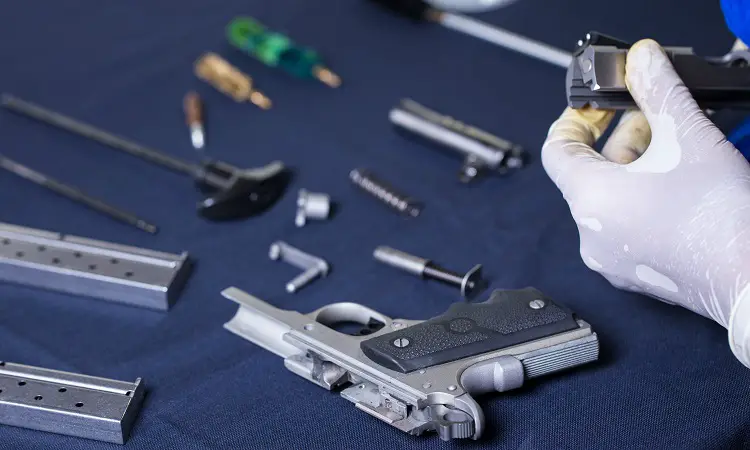
The advice on cleaning a gun differs depending on who you’re talking to, but as a general guide, you should try to clean it after each use.
This includes whether it was fired for target practice or taken hunting, and you should aim to do the job within 24 hours to avoid any future issues.
If you’re someone who solely stores their gun in case of an emergency, you can wait a little longer in between cleaning.
Some say every few months is ideal and others stretch it out to six-monthly, so it all depends on what you’re comfortable with.
To get the most accurate timeline for cleaning a firearm though, you should consult the owner’s manual that came with it.
There are lots of factors including size, age, and construction that can impact when a gun should be cleaned to keep it in good shape, and as a responsible owner, you need to understand each of them.
The Right Tools And Equipment For The Job

Every gun owner has their own cleaning kit for their weapon, with some preferring certain tools over others. If you’re new to firearm ownership though, you’ll need to assemble your supplies, so consider adding some of these to a kit.
- Bore brush
- Bore lubricant
- Bore snake
- Gun cloth
- Cleaning rod
- Cleaning swabs
- Cleaning patches
- Cleaning jags
- Utility brushes
- Drip pan
- Rubber mat
- Bore cleaner
- Action cleaner
Read Also: Best Non-Toxic Gun Cleaning Solvents
Step By Step Guide To Cleaning Your Gun
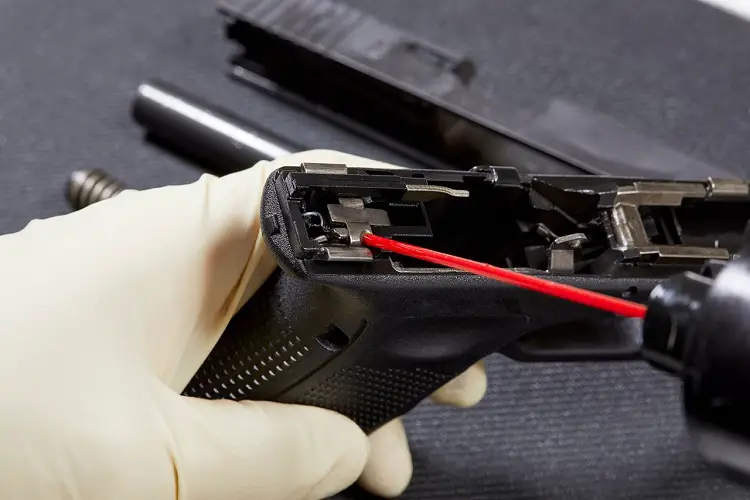
Preparation is key when it comes to cleaning a firearm, and you’ll want to make sure you have plenty of room to lay out your tools and the parts of the gun.
With everything required in front of you and the magazine removed from the weapon, follow these steps to give it a simple but thorough cleaning.
- Use your bore brush to starting brushing the chamber and barrel, always pushing in the direction of the chamber to muzzle. This loosens up things like metal fouling and carbon and will make it easier to clean from here on.
- Apply some solvent to the cleaning patch you’re using and then place it onto the cleaning rod. Push the rod through the barrel so that the cleaning patch’s solvent has been covered inside of it, and the chamber, bore surface, and the other side of the barrel. Don’t pull it back through the other way as this will contaminate it once again. Give it 15 minutes to rest so that the solvent can get to work breaking everything down.
- Use your bore brush to scrub out the inside of the barrel. Apply a new patch to the rod without anything on it, and dry wipe out the residue left behind inside. Continue doing this with a clean patch until it comes out with nothing on it.
- Use another pull-through tool that’s been covered in lubricant so you can coat the entire bore surface. This should be something specifically made for the bore, and not a general gun oil.
- Clean the outside of the gun now, focusing on the feed ramp, barrel hood, exterior of the barrel, and the barrel lug.
- With your utility brush and action cleaner solvent, focus now on cleaning and lubricating the slide, pump, or bolt of the gun. This should be done by spraying from the top down so that the debris and carbon can fall into the drip pan. Give all of the parts time to dry before moving on.
- Apply drops of lubricant to the required spots, and check the owner’s manual to determine where these are. You want to use only a small amount on parts like the slide assembly, action, and barrel’s exterior.
- Reassemble the firearm back together as you took it apart and perform a functional check to see if that everything is working. Check over the slide operation, ejection systems, trigger mechanism, and safety, and any other parts necessary.
- Wipe down the outside of the weapon using your gun cloth to remove any leftover debris and lock it away in its usual home.
A Clean and Reliable Weapon
The last thing you want to deal with is a gun that doesn’t fire properly or at all, and with a regular cleaning schedule, you’ll be able to avoid this.
Not only does regular cleaning keep your weapon in top shape but it gives you a chance to inspect it closer, so you’re always guaranteed a functioning firearm.
Related Questions
A responsible gun owner understands the benefits of keeping their weapons clean and has a regular schedule they follow to ensure it’s always done.
If you still want to know more about the right and wrong way to clean a handgun, these FAQs might be able to give you some additional information.
Can You Clean a Gun Without Taking It Apart?
It’s not always necessary to completely disassemble a gun to clean it, and you should avoid doing so unless there’s an issue that you need to inspect.
Field stripping is the technical term for taking apart a gun to the highest extent, and usually not required, so try to clean out the chamber and other parts without going this far.
Can You Use Vinegar to Clean a Gun?

Home remedies and household items like vinegar might have been used for years to clean guns, but you should proceed with caution before using any of them yourself.
When dealing with something as dangerous and technical as a gun, it’s best to only use dedicated firearm cleansers and solvents to clean them.
What Is A Good Substitute for Gun Oil?
If you’re out of gun oil and need something to lubricate your weapon, options like Froglube and Slip 2000 EWL can be used as an alternative.
However, it’s always recommended to use a firearm-specific oil for lubrication, so you should only apply a substitute product as a once-off.
Resources:
